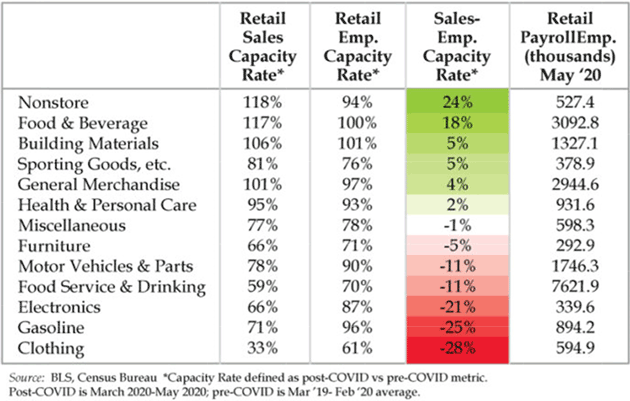by John Mauldin
In its latest Monetary Policy Report to Congress, the Federal Reserve outlined that the collapse in demand may ultimately bankrupt many businesses is one of the biggest risks to our economy right now.
Nowhere is that more apparent than at once-bustling restaurant and bars that simply can’t afford to reopen.
There are roughly 2.2 million restaurants around the world. The tsunami that just hit them is indescribably painful. It hurts me to think of the places I’ve enjoyed wonderful evenings with friends, in dozens of different countries, that are now probably gone forever.
Data from restaurant review app Yelp show that, as of mid-June, some 140,000US restaurants that closed in March are still closed. And about 41% have closed for good.
So, this risk that the Fed identified is well underway.
One recent survey of San Francisco restaurant owners found 60% lose money by staying open… even in normal times. Now capacity restrictions, combined with a general desire to stay home, make their prospects bleak indeed.
They may hang on awhile, helped by the Paycheck Protection Program and other initiatives. But their challenge is deeper.
Nor is it just restaurants. The same or similar problems apply to bars, hotels, casinos, nightclubs, theaters, music venues—basically anywhere people gather in crowds. The crowds make them profitable.
These businesses often can’t survive at 50% or even 80% capacity. They need to be full, and now they can’t be. Can they change their model? Of course. But that will mean fewer employees and lower profits.
This brings us to the real problem: These businesses employ millions of workers directly, and millions more depend on them indirectly. Many who lost their jobs in the last three months won’t get them back.

Source; Quill Intelligence
It is certainly easy to see the restaurant businesses and their brethren are seeing extremely bad data. How soon before we go back to a movie theater? When we can watch from home, generally for less cost, even with a few friends for the human experience? How many other businesses have similar dynamics?
It is going to take several years for the employment situation to sort itself out. If your job is gone, what do you do now?
I talk often about capitalism’s “creative destruction.” We go through times when the world changes. Businesses and workers must adapt. We don’t yet know how this will all develop, but COVID-19 seems likely to permanently change some industries. That could make many of these “temporary” job losses permanent.
Economists call this a “reallocation shock.” Affected workers have no good choices. They can change careers, which might require expensive and time-consuming education. Or they can move someplace that has jobs matching their skills. Neither is easy.
And with some states halting and even reconsidering their reopening plans, it’s not going to get easier.
It is similar to the way outsourcing and technology eliminated US manufacturing jobs in recent decades. This time, service industry workers are the unlucky ones, except the shock is happening much faster.
I predict an unprecedented crisis that will lead to the biggest wipeout of wealth in history. And most investors are completely unaware of the pressure building right now. Learn more here.